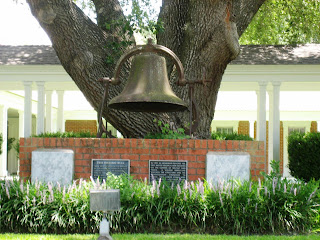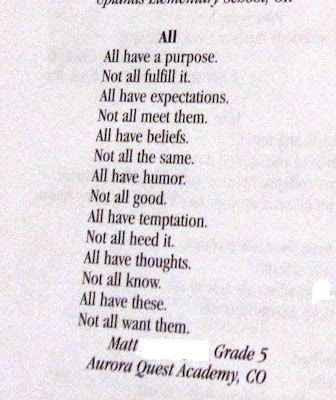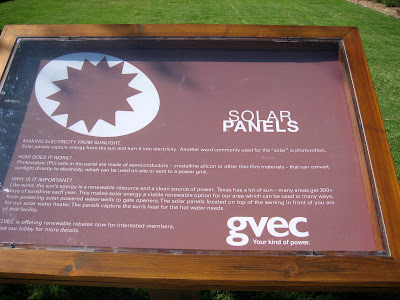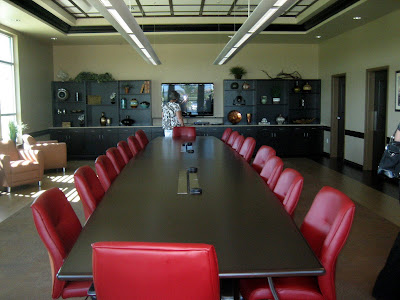 Most of my Aimless Thoughts are now on Aimless Musings . . . VERY aimless . . .
Most of my Aimless Thoughts are now on Aimless Musings . . . VERY aimless . . .
Friday, October 9, 2009
Thursday, September 24, 2009
Wednesday, August 12, 2009
Whoops!

OR - maybe I will just continue to post on both blogs . . . hmmmmm - Aimless Musings in general and this Seguin blog with MORE aimless thoughts . . .
And, as Dear Hubby would say: "Who cares??"
Friday, June 19, 2009
Tuesday, June 9, 2009
Haywood Shepherd "Possum" Hansell - Family Information

- Haywood Shepherd Hansell, Sr. was the son of William Andrew Hansell (1843-1907) and Antonia Sabina Jones (1847-1917)
- William Andrew Hansell was the son of Andrew Jackson Hansell (1815-1881) and Caroline Clifford Shepherd (1821-1899)
- Andrew Jackson Hansell was the son of William Young Hansell (1794-1867) and Susan Byne Harris (1797-ca1873
- William Young Hansell was the son of John W. Hansell and Patsy Sammon
___________________________________________
In my post about my Cherokee ancestor, Richard Bark Foreman, I made mention of Attorney William Young Hansell, who represented the Cherokee nation in their suit against the State of Georgia.
I welcome any readers who come upon this post who are interested in researching these (my) families - would certainly like to exchange and share research information.
Copied from THE CHILDREN OF PRIDE - A True Story of Georgia & the Civil War, edited by Robert Manson Meyers, published 1972 HANSELL, WILLIAM ANDREW (1843-1907) Merchant, son of Andrew Jackson Hansell (1815-1881) and Caroline Clifford Sheppherd (1821-1899), was born in Marietta, Georgia on August 10, 1843. At the outbreak of the Civil War he was attending the Georgia Military Institute (Marietta); he volunteered for service and became adjutant in the 35th Regiment Alabama Infantry. In August 1862 he entered the corps of engineers as second lieutenant; in June 1864 he came to Atlanta to aid in the city defenses. After the war he planted in northern Alabama; in 1879 he settled in Atlanta, where he engaged in the fertilizer business for twenty-five years. He was a vestryman of St. Philip's Episcopal Church from 1895 until his death. He died in Atlanta on January 4th, 1907, survived by his wife, Antonia Jones (1845-1917) and was buried in Oakland Cemetery. __________________________________________________
Monday, June 8, 2009
Saturday, May 30, 2009
Friday, May 29, 2009
Saturday, May 23, 2009
A new and perhaps/hopefully different blog
The Barter System

I recall my father teaching young men in the San Luis Valley the printing profession. In payment, the priest who initiated this occupational service for the youth would pay my father in wine. My dad didn't drink wine. My mom didn't drink. Period. Thus, after their deaths, my siblings and I discovered in the old cedar chest - bottle after bottle of crystallized wine.
A great deal of the work he did for others was for nothing. That was him.
My mom was a marvelous seamstress; we would window shop and I would point out dresses that I particularly liked. Then, entering the store, my mother would examine the dress, go home and sew the same dress for me! Oh, how fortunate I was. She also did sewing for friends and neighbors and did not accept any payment. But of course, these friends and neighbors would grace us with something like home-grown vegetables, canned fruit, an especially pretty beaded evening purse for me (at twelve years of age!!) from an aged neighbor who probably had it on her arm in the 1920s with her flapper dress swirling as she danced.
My father also did a lot of print shop work for Orval Ricketts at the Hustler Press in New Mexico and I recall the payment for one particular job: a lovely Two Grey Hills rug. Trade. Barter. It's back.

The exchange of goods and services remains mostly local matter, the Internet is taking corporate barter to new heights.
Airline Reservations Network in Orlando, Fla., sold $800,000 worth of airline tickets last year without receiving a nickel of cash. How? Company president Scott Bender says it's because his company embraces barter. "We barter airline tickets for printing, advertising space and employee benefits," says Bender. "Barter boosts our profitability by opening up a whole world of opportunity."
Financial Executive, January 1, 2001
_________________________________
Friday, May 22, 2009
Seen on the internet
Thursday, May 21, 2009
What is our legacy?

History, I believe, is not the story of grand acts and masterpieces. History, instead, is the inexorable accumulation of tiny events--footsteps and glances, hands in soil, broken promises, bursts of laughter, weapons and wounds, hands touching hair, the art of conversation, the rage of loss. Historians may focus on the famous, familiar names--but history itself is made, day after day, by all those whose names are never known, all those who never made a proclamation or held an office, all those who were handed a place on earth and quietly made a life out of it.
So, what do we affect during our lifetime? What, ultimately, is our legacy? I believe, in most cases, our legacy is our friends. We write our history unto them, and they walk with us through our days like time capsules, filled with our mutual past, the fragments of our hearts and minds. Our friends get our uncensored questions and our yet-to-be-reasoned opinions. Our friends grant us the chance to make our grand, embarrassing, contradictory pronouncements about the world. They get the very best, and are stuck with the absolute worst we have to offer. Our friends get our rough drafts. Over time, they both open our eyes and break our hearts. Emerson wrote, "Make yourself necessary to someone." In a chaotic world, friendship is the most elegant, the most lasting way to be useful. We are, each of us, a living testament to our friends' compassion and tolerance, humor and wisdom, patience and grit. Friendship, not technology, is the only thing capable of showing us the enormity of the world.
Stephen Dietz, 1992.
__________________________
Friendship exists, complete and absolute from the beginning. You don’t make friends, you recognize them.
I Want to Thank My Brain for Remembering Me

Tell me

Why would we prefer to know the worst than to suspect it? Because when we get bad news we weep for a while, and then get busy making the best of it. We change our behavior, we change our attitudes. We raise our consciousness and lower our standards. We find our bootstraps and tug. But we can’t come to terms with circumstances whose terms we don’t yet know. An uncertain future leaves us stranded in an unhappy present with nothing to do but wait.
Booking through Thursday
When . . .
 I was searching for a parking spot at the library . . the thought occurred to me . . .
I was searching for a parking spot at the library . . the thought occurred to me . . .Libraries save lives. In a 1991 study physicians said that information provided by the library contributed to their ability to avoid patient mortality. The physicians also rated the information provided by the library more highly than that provided by other information sources such as diagnostic imaging, lab tests, and discussions with colleagues.
U.S. libraries circulate about the same number of items as FedEx ships each day, i.e., about 5.3 million items.
There is now research to support what librarians have always said, i.e., libraries are busier during hard economic times.
Five times more people visit U.S. public libraries each year than attend U.S. professional and college football, basketball, baseball and hockey games combined. (1.1 billion vs. 204 million)
In a 2003 Wisconsin study, one-third of non-users of libraries said that libraries deserve more state financial support.
Wednesday, May 20, 2009
Richland Memories
.JPG)
I find family histories and area histories are interesting and rich with memories that for some unexplained reason, we can all share.
My husband grew up in Richland Parish, Louisiana and there have been two volumes of "Richland Memories" published that provide fascinating reading.
For copies of this book:
Original Richland Library
Retoration Society, Inc.
P.O. Box 522
Rayville, Louisiana 71269

We go back about every five years or so for husband's high school reunion (there were 33 - maybe 35 in his graduating class).
Tuesday, May 19, 2009
My Quaker Ancestry

"A Friend's meeting, however silent, is at the very lowest a witness that worship is something other and deeper than words, and that it is to the unseen and eternal things that we desire to give the first place in our lives. And when the meeting...is awake and looking upwards, there is much more in it than this. In the united stillness of a truly 'gathered' meeting, there is a power known only by experience, and mysterious even when most familiar." Caroline Stephen, (1908).
Where Trouble Sleeps
 Alease Toomey sat at her dresser, putting on lipstick, getting ready to take her son up to see the electric chair for the first time. She blotted her lips on a Kleenex, reached for her comb. Her dresser top held the basics only -- a jar of Pond's cold cream, a bottle of Jergens lotion, Elizabeth Arden rouge and lipstick, hand mirror, hairbrush -- all on a starched white table doily.
Alease Toomey sat at her dresser, putting on lipstick, getting ready to take her son up to see the electric chair for the first time. She blotted her lips on a Kleenex, reached for her comb. Her dresser top held the basics only -- a jar of Pond's cold cream, a bottle of Jergens lotion, Elizabeth Arden rouge and lipstick, hand mirror, hairbrush -- all on a starched white table doily.
































 Seguin Art Center
Seguin Art Center



